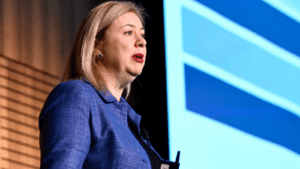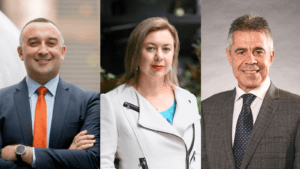-
Sort By
-
Newest
-
Newest
-
Oldest
The new rules around superannuation balances over $3 million have many searching for ways to mitigate the impact. The tax advantages of investment bonds may provide a viable alternative.
While the minister has remained relatively mute on the obvious issues with the CSLR, he will at least allow the association to discuss the scheme’s flaws with Treasury at some point.
Appropriately enough, it took a regulatory breakdown to finally ruffle the policy chief’s feathers. In the first of a series of whitepapers aimed at collating the issues, Phil Anderson lays bare the failures of government, ASIC and E&P Financial Group.
Licensees were given a month to clean up the information they provided to ASIC about adviser qualifications and training. That time is up, and enforcement action is not off the table.
The government addressed perceived ambiguity around advice fee deduction from member accounts by pulling out two statements from the bill that essentially duplicated rules that already exist in the sole purpose test.
The government’s line on its proposed changes to advice in super is incongruous with the actual changes. You can’t re-do the language embedded in the SIS Act while denying that anything will be different.
Just how thin the line that Berry walks becomes clear when he outlines the two paradoxical objectives of the CSLR. He has to highlight the worst in financial advice, while making it seem better and more trustworthy in the eyes of the public.
After the original Delivering Better Financial Outcomes bill was released in March, Treasury this week released an updated version for consultation. With minimal changes, there remains a significant bone of contention for the industry to wrestle with.
Like the Reserve Bank, ASIC is keenly aware that the rise of private markets, and especially private equity, creates both “upside and downside risks” to an efficient and fair economy. But it’s ASIC that sits in the first line of defence, and its new cohort of commissioners are determined to keep this burgeoning market clean.
Costs for the compensation scheme are spiralling out of control, with the FAAA estimating another $4,165 will be added to every adviser’s CSLR bill – bringing the estimated total to $5,709 – if the funding model isn’t re-examined.
ASIC’s successful case against the rogue “licensee for hire” serves as a timely reminder of what can happen when AFSLs aren’t on top of their compliance responsibilities. Here are ten tips to avoiding the same fate.
The government’s reform package may be flawed, but it’s crucial that the first tranche goes through parliament before the next election, Abood said. Further delays will stall vital investment in the financial advice industry.
















